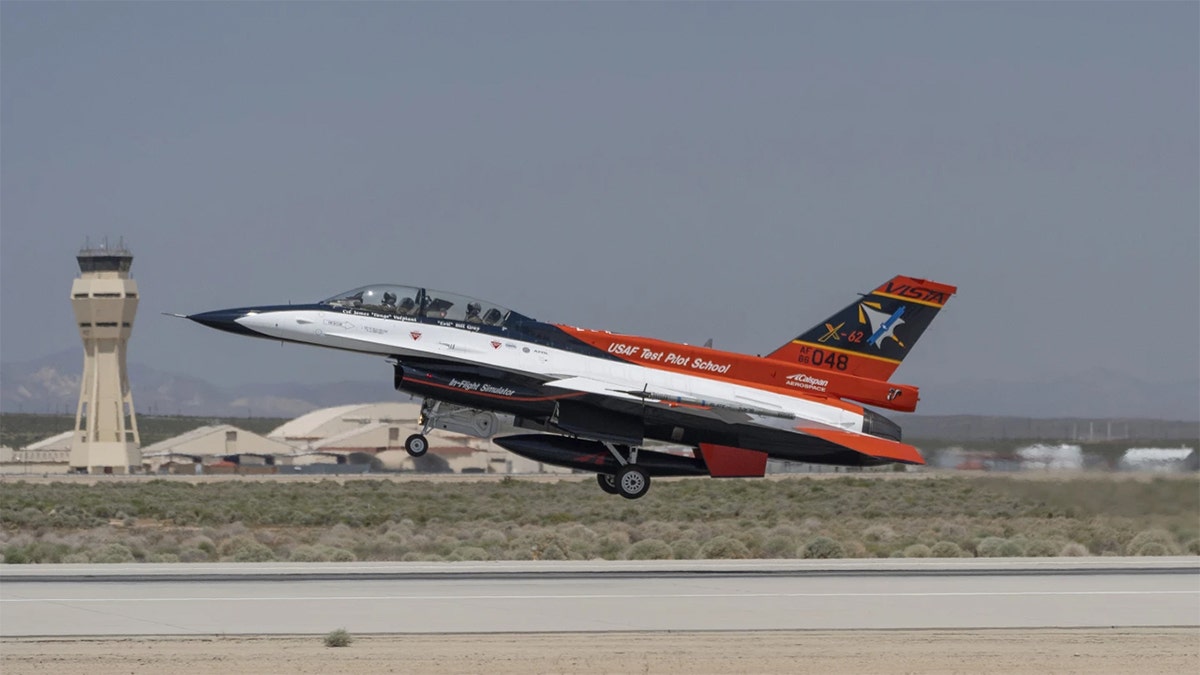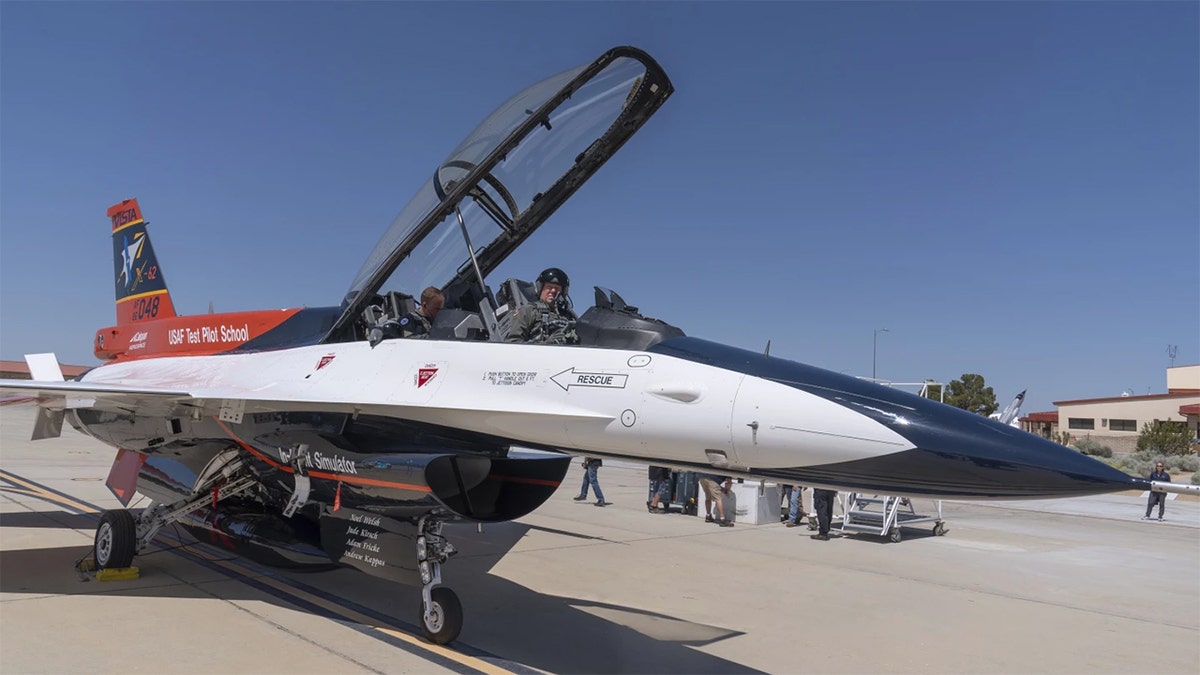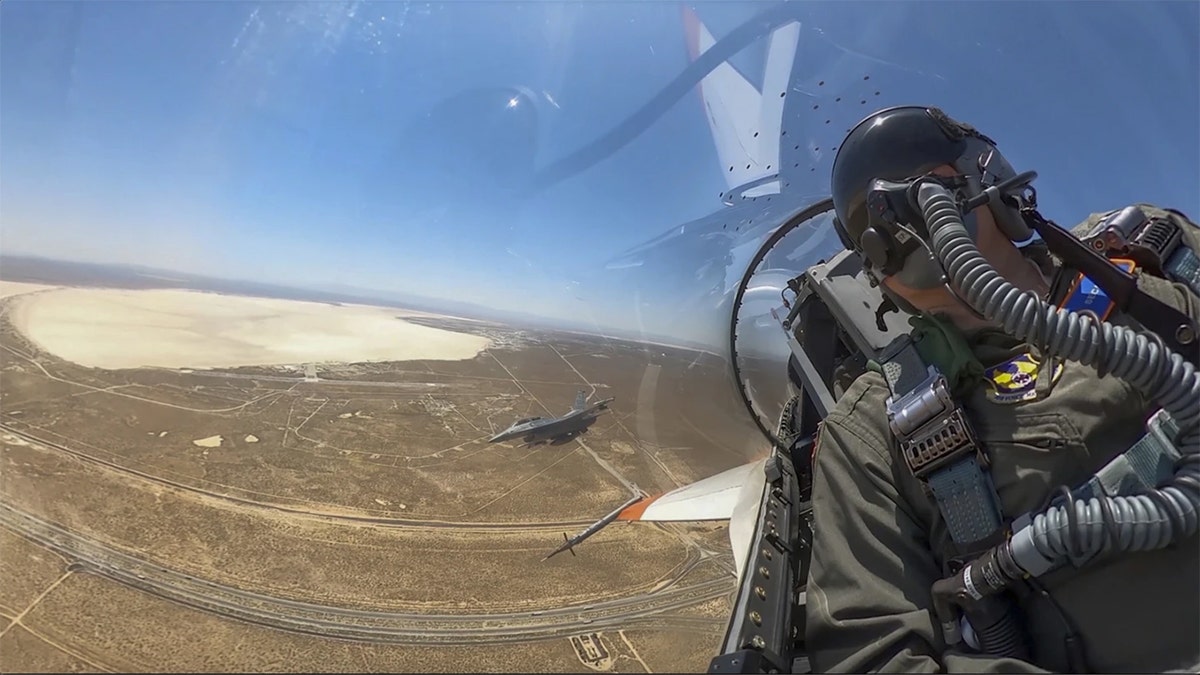(Fox News) U.S. Air Force Secretary Frank Kendall rode in the cockpit of a fighter jet on Friday, which flew over the desert in California and was controlled by artificial intelligence.
Last month, Kendall announced his plans to fly in an AI-controlled F-16 to the U.S. Senate Appropriations Committee’s defense panel, while speaking about the future of air warfare being dependent on autonomously operated drones.
On Friday, the senior Air Force leader followed through with his plans, making what could be one of the biggest advances in military aviation since stealth planes were introduced in the early 1990s.
Kendall flew to Edwards Air Force Base – the same desert facility where Chuck Yeager broke the sound barrier – to watch and experience AI flight in real time.

The X-62A VISTA aircraft, an experimental AI-enabled Air Force F-16 fighter jet, takes off on Thursday, May 2, 2024, at Edwards Air Force Base, Calif. The flight, with Air Force Secretary Frank Kendall riding in the front seat, is serving as a public statement of confidence in the future role of AI in air combat. The military is planning to use the technology to operate an unmanned fleet of 1,000 aircraft. (AP Photo/Damian Dovarganes)
After the flight, Kendall spoke with the Associated Press about the technology and the role it will play in air combat.
“It’s a security risk not to have it. At this point, we have to have it,” the secretary said.
The Associated Press and NBC were granted permission to watch the secret flight with the agreement that neither would report on the matter until the flight was complete, due to security concerns.

Air Force Secretary Frank Kendall sits in the front cockpit of an X-62A VISTA aircraft at Edwards Air Force Base, Calif., on Thursday, May 2, 2024. The flight on the Artificial Intelligence-controlled modified F-16, is serving as a public statement of confidence in the future role of AI in air combat. The military is planning to use the technology to operate an unmanned fleet of 1,000 aircraft. Arms control experts and humanitarian groups are concerned that AI might one day be able to take lives autonomously and are seeking greater restrictions on its use (AP Photo/Damian Dovarganes)
The F-16 controlled by AI is called Vista, and it flew Kendall in maneuvers reaching over 550 mph, putting pressure on his body of nearly five times the force of gravity.
Flying alongside Vista and Kendall was a human-piloted F-16, and the two jets raced within 1,000 feet of each other performing twists and loops, in an effort to force their opponent into a place of submission.
Kendall grinned as he climbed out of the cockpit after the hour-long flight, saying he saw enough to trust the AI technology in deciding whether to fire weapons during a war.

This image from remote video released by the U.S. Air Force shows Air Force Secretary Frank Kendall during his experimental flight inside the cockpit of a X-62A VISTA aircraft autonomous warplane above Edwards Air Base, Calif, on Thursday, May 2, 2024. The AI-controlled flight is serving as a public statement of confidence in the future role of AI in air combat. (AP Photo/Damian Dovarganes)
Many oppose the idea of computers making that decision, fearing AI may one day be able to drop bombs on people without consulting with humans.
The same people who oppose AI-powered war machines are also seeking greater restrictions on its use.
One of the groups seeking stronger restrictions is the International Committee of the Red Cross.
“There are widespread and serious concerns about ceding life-and-death decisions to sensors and software,” the group warned, adding the autonomous weapons “are an immediate cause of concern and demand an urgent, international political response.”






